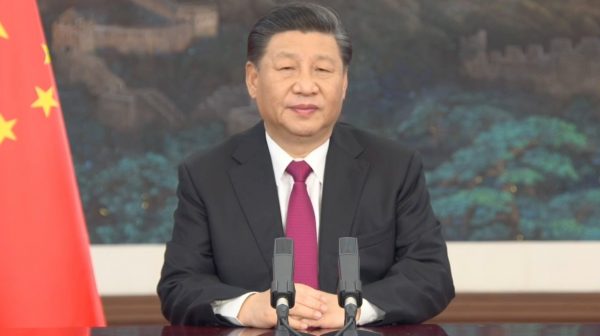China’s espionage allegations
Cheng Lei was born in China and migrated to Australia with her family at the age of 10 years. She is a professional accountant and worked as a business analyst before starting a career in journalism and news anchor. She has interviewed many high profile figures of society. The Australian Embassy in August, 2020 announced that they had been notified by Chinese authorities that Cheng Lei was suspected in illegally revealing state secrets outside of China and had been detained. No details were given to the Embassy.
Cheng Lei trial was held behind closed doors and her lawyer and family have been forbidden to speak about the trial. Family visits are prohibited and Cheng Lei has limited contact through letters only. Her elderly parents and children live in Australia and are very worried. The Australian Ambassador was prevented from attending the trial. Chinese authorities said that the decision will be announced later. The trial has been criticized of violating the basic principle of fair trial and of violating terms of the bilateral agreements between Australia and China wherein Australian officials from the Embassy are allowed to attend the trials of Australian nationals in China.
“This is deeply concerning, unsatisfactory and regrettable. We can have no confidence in the validity of a process which is conducted in secret…….Our consular agreement says that we ought to be able to attend trials,” Graham Fletcher, Australian Ambassador, told journalists after being barred from the proceedings.[1]
This is not the first time China has held trials behind closed doors over allegations of leaking state secrets. However, the term ‘state secrets’ is very wide and vague and Chinese law does provide any definition as such. A number of activists and journalists have been tried on charges of spying.
Yang Hengjun is an another Australian, a writer and blogger, who has been under arrest on the charge of spying since 2019. In 2021, Yang’s trial was held behind closed doors. Yang’s narrative of the trial was published wherein he stated that the judge rejected his request for rejecting the statements he made under torture and refused to allow him to adduce his own evidence and even produce witnesses. Here too the Australian Embassy was denied from attending his trial. As of January 2022, Yang is suffering from deteriorating health.
Both the above detentions have been theorized to be a reflection of the strain in China-Australia relationship. Australia followed US in banning its companies from using Huawei’s products and services over allegations that they contained backdoors through which Chinese authorities had illegal access to data. Australia also supported calls for investigating into the origin of Covid-19. Australia also diplomatically boycotted the Beijing Winter Olympics over gross human rights violations of Uyghur Muslims by China. China has also placed trade sanctions and has stopped import of coal required for its large industrial sector from Australia and is now relying on Mongolia.
Following the arrest of Meng Wanzhou, Huawei’s Chief Financial Officer, by Canada, two Canadian nationals, Michael Spavor and Michael Kovrig were detained on charges of spying in 2018. Here too, Canadian officials were denied to their trials, which was held behind closed doors. They were released in 2021, on the same day Meng was released.
China’s criminal laws has been used to crackdown on foreign human rights activists and media as well as citizen-journalists reporting on the Covid-19 pandemic and the human right violations during the Hong Kong protests and of Uyghur Muslims. China uses a form of detention called Residential Surveillance at a Designated Location (RSDL) which has been criticized of being archaic and a gross violation of human rights. There have been allegations of extreme physical and mental torture, including psychological torture suffered by detainees under RSDL. RSDL has been called ‘State-kidnapping’. It has been alleged that police authorities are misusing it muzzle dissent, free speech and free press. RSDL is carried out in hidden locations. Family members of detainees do not know where they are being held nor whether they will ever be released.
RSDL and closed-door trials on charges of espionage have significantly increased since President Xi Jinping came into power in 2013.













